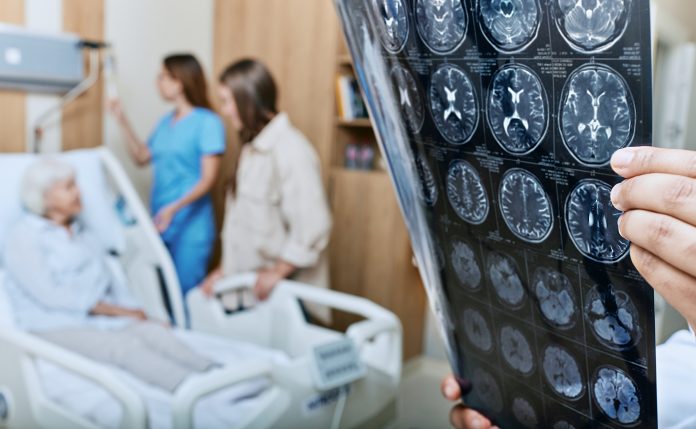A new study led by researchers at Karolinska Institutet has shown that specific blood biomarkers could predict the onset of dementia, including Alzheimer’s disease, up to ten years before an actual diagnosis in older adults living independently
This finding is particularly important as it may offer a way to identify individuals at risk of dementia before any symptoms appear, potentially allowing for early intervention and improved care strategies.
Predicting the likelihood of developing Alzheimer’s
The research, published in Nature Medicine, focused on three biomarkers, tau217, Neurofilament Light (NfL), and Glial Fibrillary Acidic Protein (GFAP), which are proteins found in the blood.
These biomarkers are known to be involved in the neurodegenerative processes that underlie dementia. The study’s main aim was to explore whether measuring these biomarkers in cognitively healthy older adults could predict whether they would develop dementia years down the line.
The study’s findings
The study followed more than 2,100 adults over the age of 60 who were living independently in the community. The participants were tracked for a decade to see if they would develop dementia. At the end of the ten years, 17 percent of the participants had been diagnosed with dementia.
The researchers found that the blood biomarkers could predict the onset of dementia with up to 83 percent accuracy. This high level of predictive power, especially over such a long period, is encouraging for the future of dementia diagnostics. It suggests that it may be possible to identify those at risk long before cognitive symptoms appear, leading to earlier intervention and better management of the condition.
Future implications for Alzheimer’s care
The researchers explain that these biomarkers are not yet ready to be used as standalone screening tools for the general population. Although the biomarkers can accurately predict the likelihood of developing dementia, they also have low positive predictive values.
This means that having elevated levels of these biomarkers doesn’t guarantee that an individual will develop dementia. While low biomarkers can offer reassurance, higher levels don’t necessarily mean someone will develop the disease in the next decade.
The study’s findings suggest that a combination of the three biomarkers could improve the accuracy of predictions. For example, combining tau217 with NfL or GFAP may provide a more comprehensive picture of an individual’s risk. However, the researchers emphasise that more research is needed to determine how these biomarkers can be effectively used in real-world settings, particularly within primary healthcare services or for older adults living in the community.
Currently, the biomarkers are most useful for researchers. They may help identify individuals at high risk of developing dementia, allowing for targeted studies or trials to slow or prevent disease progression. But for now, the researchers warn against using these biomarkers as a general screening tool for dementia.
This study represents an important step forward in dementia research and could eventually help improve the lives of those at risk. However, more work is needed before these biomarkers can be widely implemented in clinical practice. The next steps will likely involve testing how these biomarkers can be combined with other clinical and biological data to create a more reliable and effective method for predicting dementia in the general population.
The research, which was funded by the Swedish Research Council, the Swedish Brain Foundation, and Karolinska Institutet’s Strategic Research Area in Epidemiology and Biostatistics, opens new doors for understanding dementia and offers hope for early diagnosis and better outcomes for future generations.











